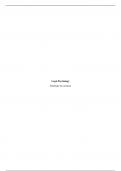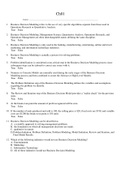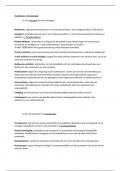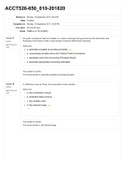Samenvatting
Legal Psychology Bundle: Summary, Lectures, Practice Exam
- Vak
- Legal Psychology
- Instelling
- Erasmus Universiteit Rotterdam (EUR)
The legal psychology bundle includes lecture notes, a comprehensive summary based on the literature, and a practice exam containing 20 questions. This bundle was updated in 2023/2024 and is an excellent course and exam preparation. The comprehensive notes summarise book chapters and articles in b...
[Meer zien]







